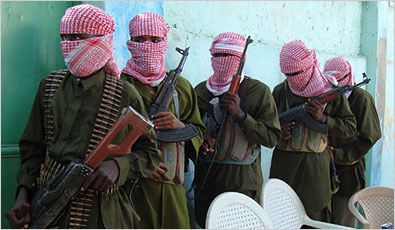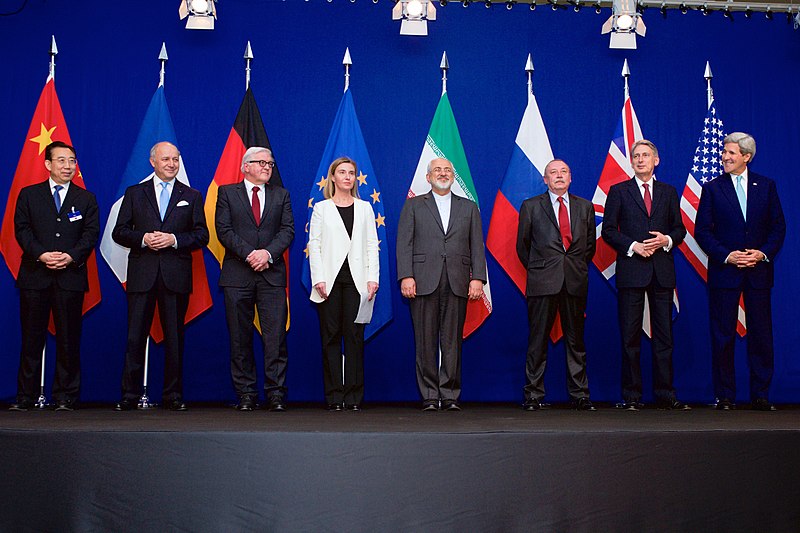The Mall Attack in Kenya and Related Terrorism in Africa
On 21 September 2013, masked gunmen opened fire in a crowded and upscale shopping mall in Nairobi, Kenya, killing at least 62 civilians and wounding 200. A Somali-based Islamist militant group, Al-Shabab, is claiming responsibility for the attack, stating its revenge for Kenyan military operations in Somalia that began two years ago. As of 24 September, the siege on the mall by Kenyan government forces has ended, and the attackers have either been killed or are currently being held in custody.
This attack reflects the presence of terrorism across Africa that has been growing for some time. This is not the first attack that Al-Shabab has recently mounted. In July of 2010, it took the blame for a series of bombings that killed 70 people in Uganda during the World Cup. Additionally, terrorist cells have been growing in North Africa as three groups, al-Qaeda, the Sahel and Ansar al-Din of Tunisia, have undergone efforts to merge, in addition to threatening to attack countries that are under Western influence, namely Egypt, Morocco, Tunisia, and Libya. This trend has continued into West Africa as a result of the Masked Battalion and the Tawhid wal-Jihad forming the al-Mourabitoun terrorist organization, and Al-Shabab has also collaborated with the Boko Haram organization in Nigeria.
American and Canadian Responses – How and Why?
Both Canada and the US have been moving swiftly to stymie the presence of terrorism in Africa. Just one week prior to the Kenyan attack, Foreign Affairs Minister John Baird pledged $1.2 million towards counterterrorism activities in North Africa and the Sahel; a region located South of the Sahara Desert. Canadian Special Forces were significantly active in Mali for various training missions prior to a coup last March that installed an unstable provisional government, and the country has been one of the largest recipients of Canada’s foreign aid.
Canada’s active participation in counterterrorism is likely due to the growing membership of Canadians in militant terrorist cells. After the revelation that two Canadian terrorists were involved in the January attack on an Algerian gas plant, intelligence reports stated that radicalized Westerners are increasingly being lured to join terrorist groups in Africa and other hot spots, particularly Syria. What is more, twenty Canadians have allegedly joined Al-Shabab, and authorities are investigating whether a 24 year-old Ontario man is one of the gunmen involved in Nairobi’s mall attack. These Canadian expats are a particular worry for national security officials as they could return home to carry out attacks and radicalize others.
The US has been steadily increasing its counterterrorism activities on the continent; both through condemnation, and military and security collaboration. Secretary of State John Kerry criticized the Nairobi attack, calling the attackers “ruthless and reckless”, while President Obama reached out to the Kenyan President to reaffirm the partnership between both countries. The Obama Administration requested $38 million of Congressional funds in 2011 to pay for US arms sales to Africa, and has been continuing its drone usage in Niger.
The US is preserving its interest in combating African terrorism because it presents a threat to American national interests. As an example, the US provides $1.5 billion to annually in aid to Egypt. Additionally, Al-Shabab presents an explicit threat to the Kenyan government and, in turn, it is a threat to the US. In recent years, the US and Kenya have worked closely on military collaboration, and the CIA station in Nairobi is one of the largest in Africa.
What to Expect In The Future?
Actions are taken by the West to combat African terrorism. For example, the US is training local forces to fight insurgents so American troops do not have to. The objective is to give hope that the increasing terrorism will be stifled, but barriers still remain. In the case of the Nairobi attack, the fact that both Kenyan government and African Union forces have been kept at bay by Al-Shabab indicates that the latter are as dangerous as ever. The group has also intensified its pattern of attacks in its home base in Somalia. Al-Shabab, has become more sophisticated by coordinating with other militant groups, and has spread its influence in Kenya among non-Somali Kenyans. Also, larger-scale Western involvement in the region, such as the use of American drones in Niger, risks creating a violent backlash due to anger among locals.
The merging of terrorist cells obscures the entire enterprise and makes it harder for counterintelligence units to distinguish between them. Moreover, due to the transmissible nature of this terrorism (as it spreads to different regions and is not confined to its country of origin), it will be increasingly difficult to confine and treat it. This activity in the region serves as a sobering reminder that the war on terror is still very much alive.




